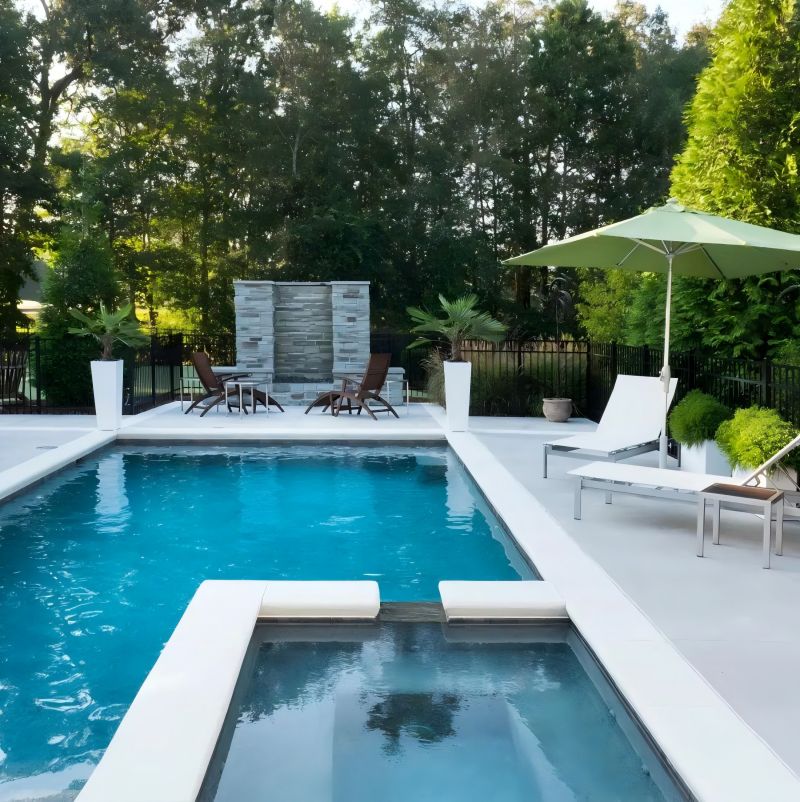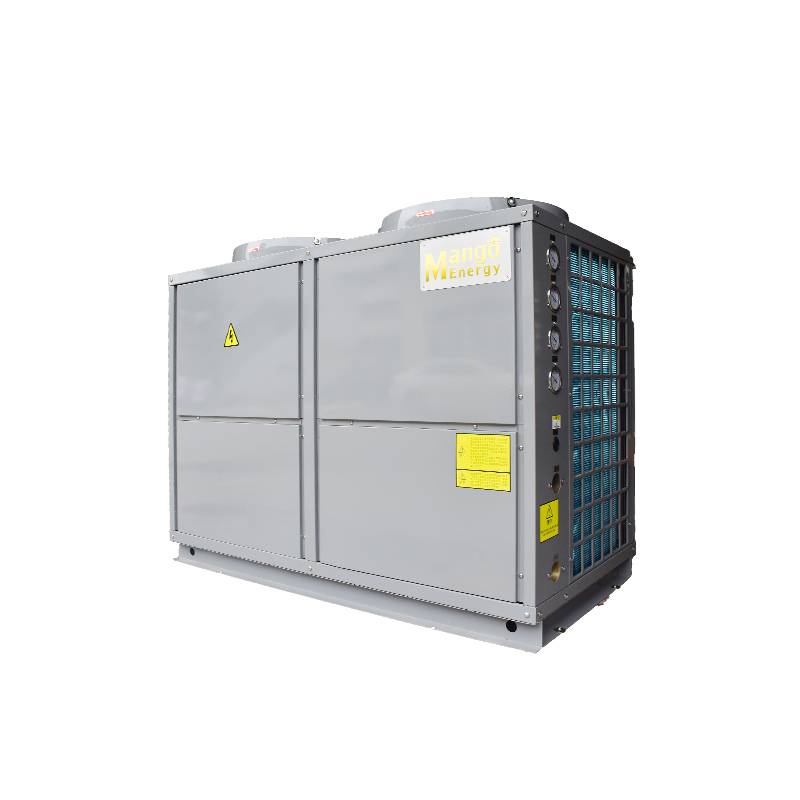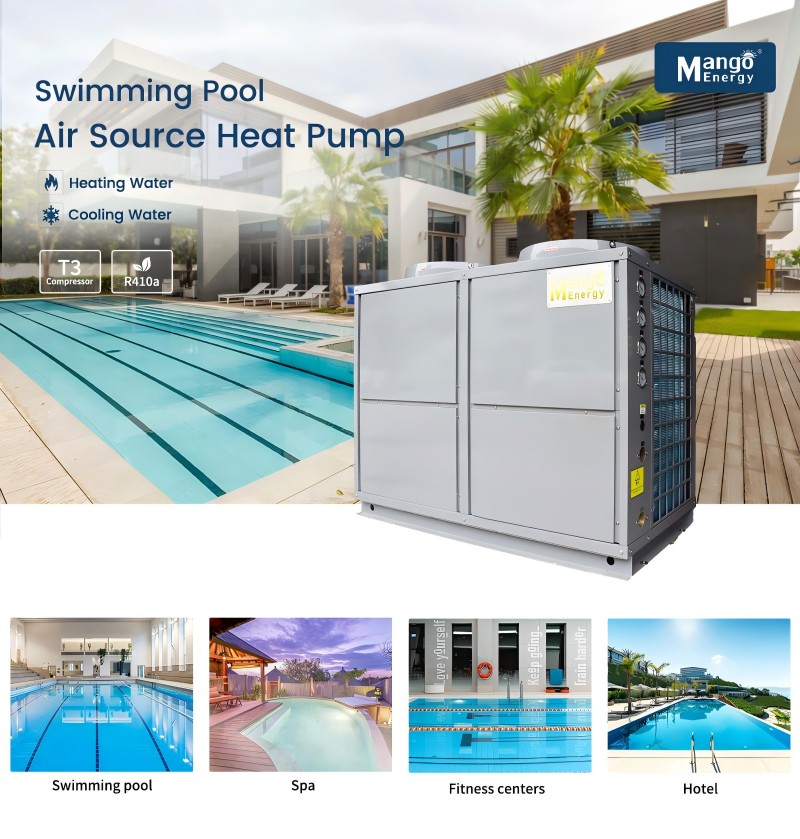
Driven by the dual demands of energy efficiency and environmental sustainability, heat pump technology has found broad applications across various fields. Among these, the air source heat pump specifically designed for swimming pools stands out with significant differences from general-purpose heat pumps.
Firstly, in terms of application scenarios and functional requirements, the mission of a dedicated air source pool heat pumps is to provide stable heating and temperature control for pool water, ensuring that swimmers can enjoy a comfortable water temperature. In contrast, other heat pumps, such as household heat pump water heaters, are designed primarily to meet domestic hot water needs, while commercial heat pumps focus on providing heating or cooling services for buildings. Given the large water volume in swimming pools and their concentrated usage periods, a dedicated pool heat pump must have stronger continuous heating capabilities and rapid response to water temperature changes.When it comes to corrosion resistance, the difference is clear. Swimming pool water typically contains chlorine, disinfectants, and other chemicals that are highly corrosive. The heat exchangers, pipes, and other components that come into contact with water in a air source pool heat pumps are usually made of special corrosion-resistant materials, such as titanium alloy, and undergo specialized surface treatment to enhance their durability and extend their lifespan. In contrast, other heat pumps, which encounter less corrosive media, have lower material and corrosion resistance requirements.

Another critical distinction is the precision of water temperature control. Swimming pools have strict temperature requirements, typically maintained within the 26°C to 28°C range. To achieve this precise control, pool air-to-water heat pumps are equipped with high-precision temperature sensors and intelligent control systems that monitor water temperature changes in real-time and quickly adjust the heat pump's operation to ensure minimal fluctuations. Other heat pumps, like household water heaters, have lower precision requirements, where a few degrees of fluctuation can meet user needs.Efficiency is also a key differentiating factor. Due to the unique usage patterns of swimming pools, where the load can vary significantly depending on the number of swimmers at different times, pool air source heat pumps are optimized for partial load operation. They can adjust output power flexibly based on actual demand, ensuring efficient and energy-saving performance. Other heat pumps are primarily designed for stable load conditions and are less adaptable to load variations.

In terms of hygiene standards, pool air-to-water heat pumps have higher requirements. The sanitation of pool water directly affects the health of swimmers, so specialized heat pumps are designed to prevent bacterial growth and cross-contamination. This can be achieved through optimizing water circuit design to minimize stagnant water areas, ensuring sufficient water circulation, and using antibacterial materials for key components. Other heat pumps place less emphasis on hygiene, focusing mainly on basic functionality.
From the perspective of installation and maintenance, pool air source heat pumps also have unique features. Due to the complex spatial layout and environmental conditions of pools, the installation location and method of the dedicated heat pump need careful planning, often requiring placement outdoors, on rooftops, or in dedicated equipment rooms. Moreover, to ensure long-term stable operation, maintenance must be more frequent and detailed, including regular water quality checks, cleaning heat exchangers, and inspecting control systems. Other heat pumps have relatively simpler and more routine installation and maintenance processes.

In summary, pool air source heat pumps differ from other heat pumps in terms of application scenarios, corrosion resistance, temperature control precision, operational efficiency, hygiene standards, and installation and maintenance requirements. These distinctions are all designed to better meet the specific needs of swimming pools, providing swimmers with a comfortable, safe, and energy-efficient swimming environment.


